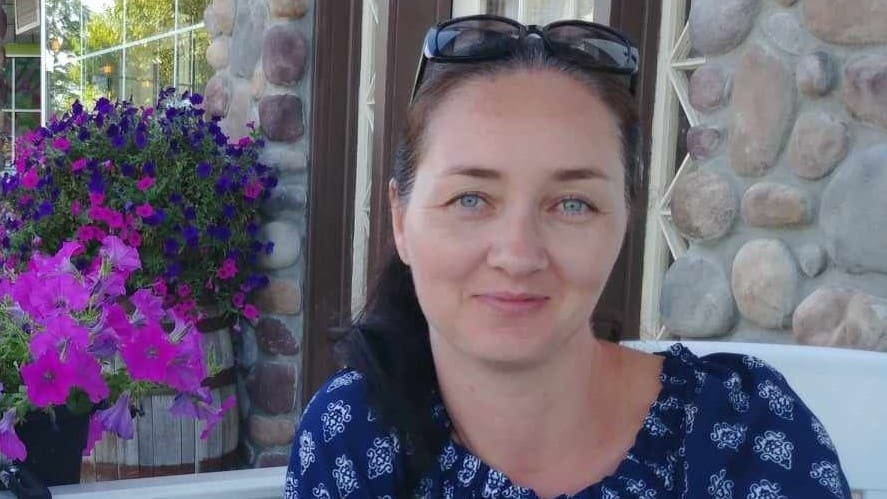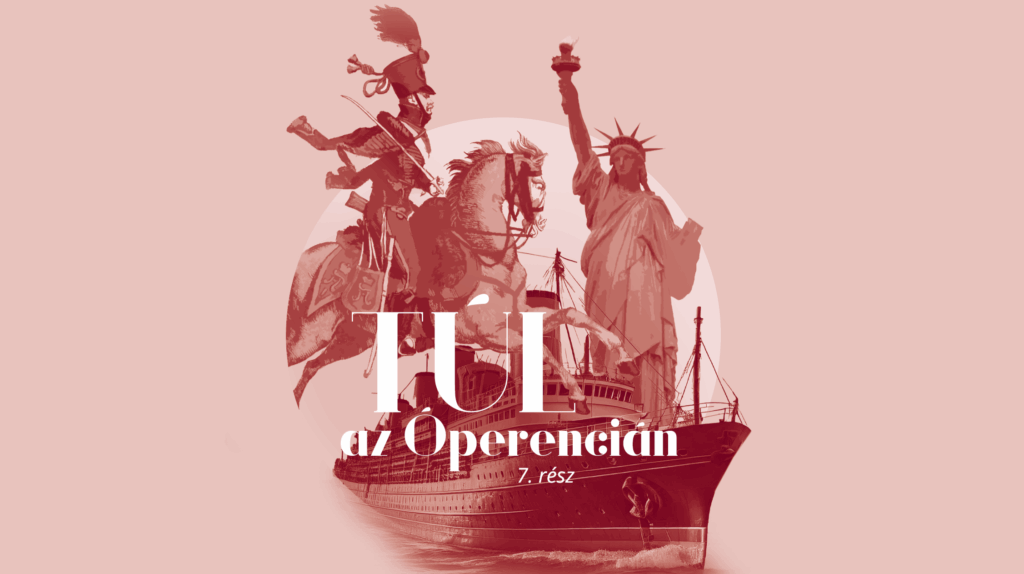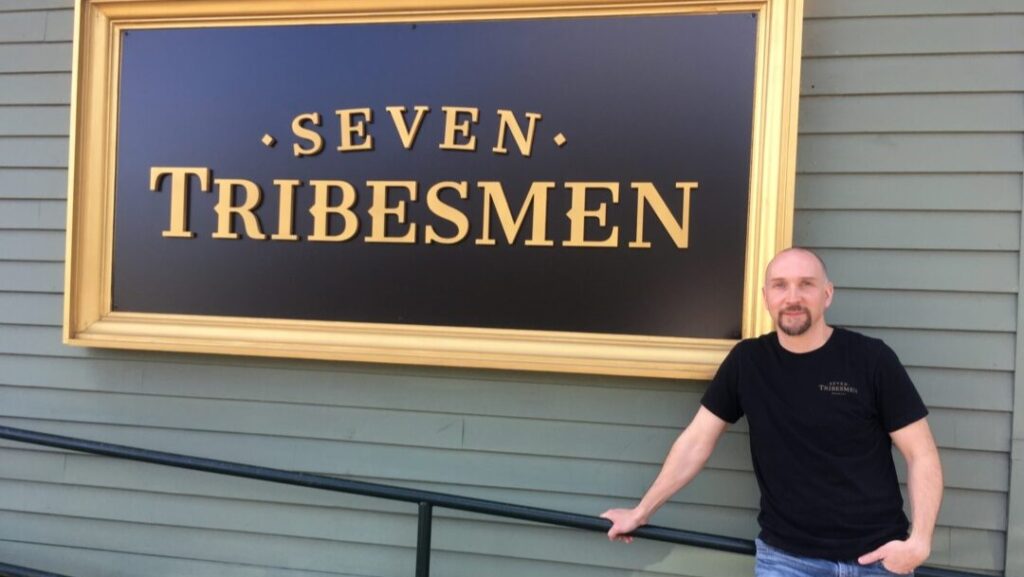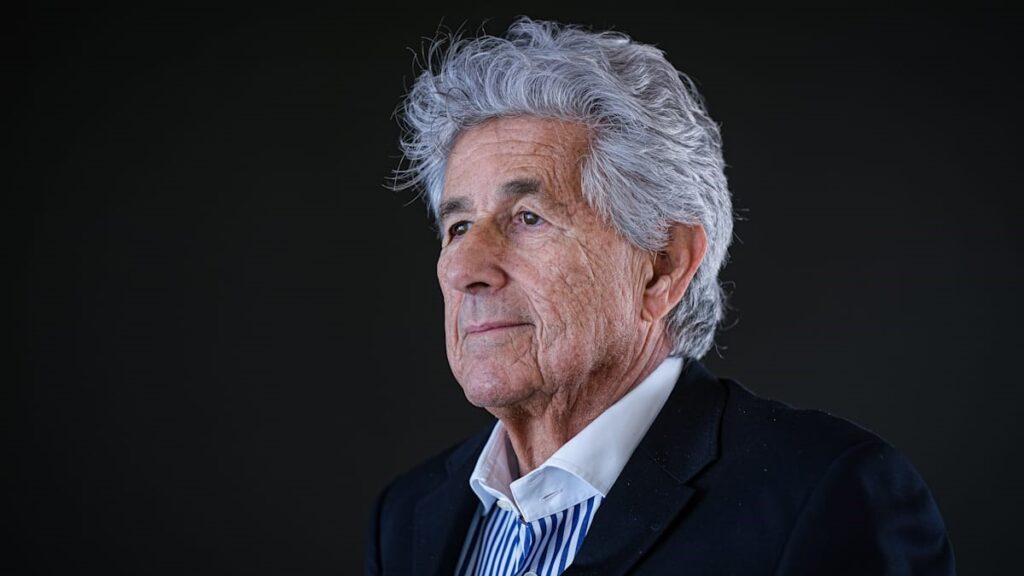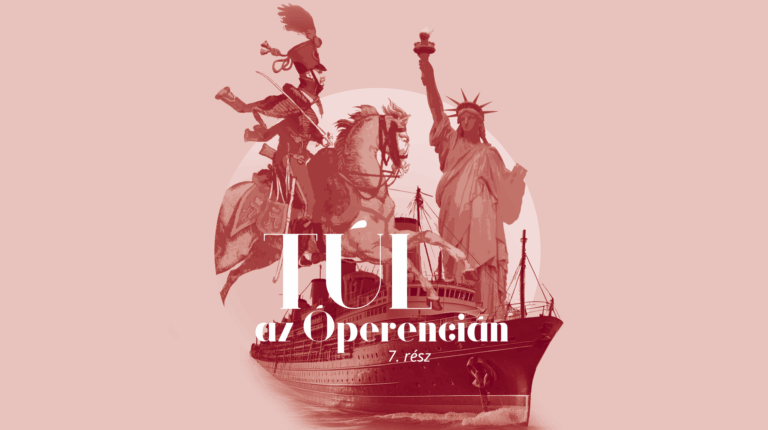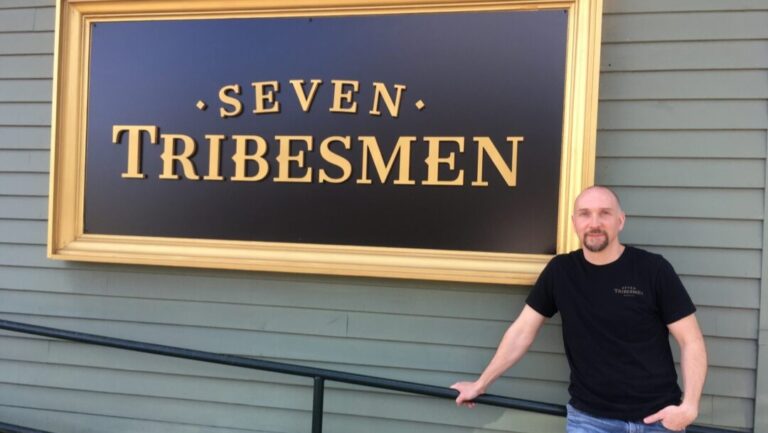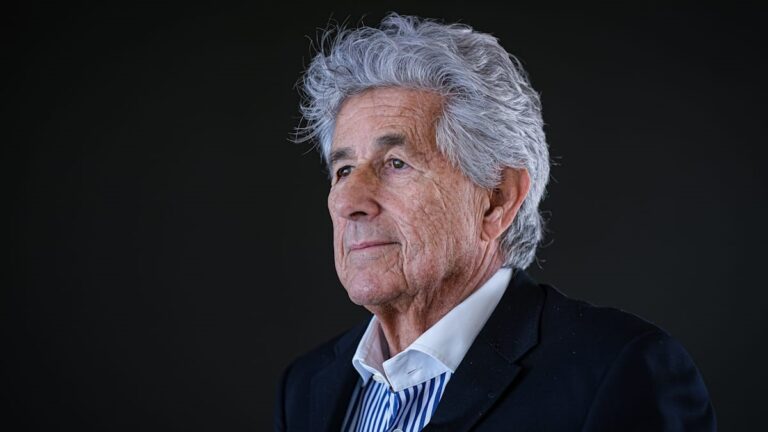Denisa Bott-Varga has been an active member of the 110-year-old Hungarian American Athletic Club (HAAC) in New Brunswick and leader of the local Csűrdöngölő Folk Dance Ensemble since the early 2000s, when she arrived to the US from Slovakia. After serving in various HAAC positions since 2014, she was first elected as president in 2020. The Covid pandemic disrupted the promising generational change; she stepped back after three years, but returned in 2024 with a new group of officers. In 2023, she received an Order of Merit of the Hungarian Republic for her work in Hungarian diaspora culture and folk dance.
***
You came to the US for one year in January 2000. Why did you stay?
I was born in Bratislava, Slovakia in a mixed-language family, and I have three younger siblings. I have been a member of various Hungarian folk dance groups since I was nine. I have always loved traveling and getting to know various cultures. At eighteen, I went to England as an au pair and at twenty-one, I came for a year to New Jersey. My English teacher introduced me to Kati, living temporarily in New Brunswick because of her dad’s job, who showed me around the city. I heard about the Hungarian folk dance group from her, so next Friday I appeared at the regular rehearsal of the Csűrdöngölő adult folk dance group. In early June I was on stage with them at the well-known local Hungarian Festival. I have been dancing and working at every Hungarian Festival in New Brunswick ever since. The New Brunswick folk dancers became my friends for life. As I was willing to stay only legally, I was suggested to study. I went to a community college nearby for two years, living with and working for several American families to pay my school tuition. Before I graduated, William Paterson University offered me a full scholarship to study business administration. But it wasn’t just school that kept me here… I started dating István Varga, also a member of Csűrdöngölő. We got married in 2003 and we have two sons: Zalán István is seventeen and Tobor János is fifteen. When Tobor was six months old, I started working, doing health insurance administration and scheduling operations for a surgeon.
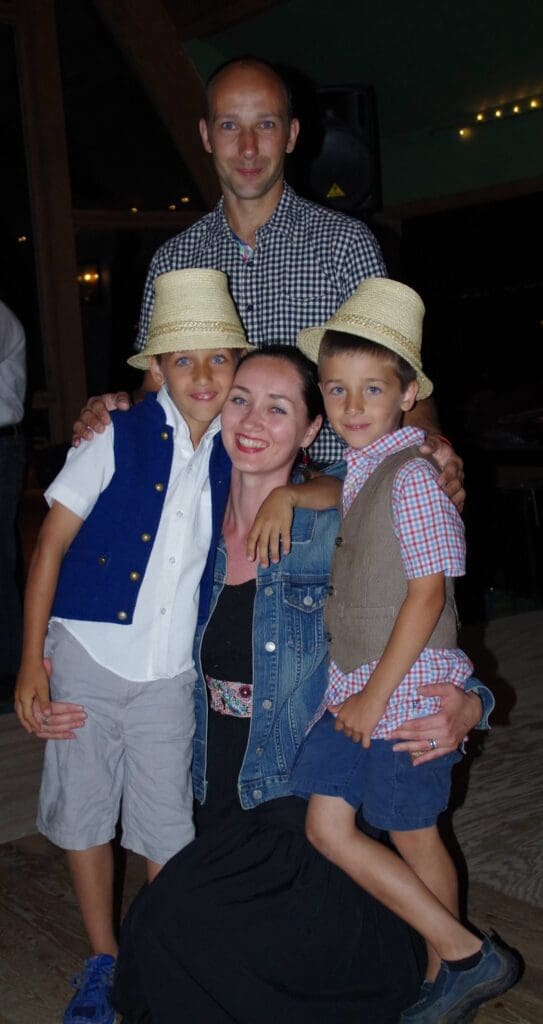
PHOTO: courtesy of Denisa Bott-Varg
Does your love of folk dance come from your family? How did you become the leader of Csűrdöngölő?
Both my parents and my grandparents were very good at singing and dancing, but not in an organized way. When I was born, the ‘táncház movement’—the Hungarian folk dance revival in an urban setting starting in Budapest in the 1970s—was just starting. At nine, my dad took me to the Szőttes, an amateur but very high-level traditional folk dance group in Dunajska Streda, Slovakia. Since then, I’ve never stopped folk dancing. I started teaching at fourteen as the assistant to our dance teacher. I took over the children group at sixteen and became an assistant teacher for the adults. When I was asked to lead Csűrdöngölő sometime in 2001, I happily accepted. We ran it with Laszló Hajdú-Németh for ten years, until they moved to Hungary. There were no other male dance teachers available; I occasionally taught with István Kosbor. When the Kőrösi Csoma Programme dance scholars started coming in 2015, I started teaching with them. I led the group for eighteen years. This meant conducting rehearsals, teaching dances, selecting and preparing costumes, selecting music and liaising with musicians, creating, organizing and putting up theatre dance shows, organizing at least two ‘táncház’ events yearly. We regularly performed in NYC, Pennsylvania, Connecticut, Boston, Washington DC. I have been teaching also the Mákvirág since 2001, and only had a break of two years, when Zalán at the age of two–three wouldn’t let any other child hold my hand. Today he dances in the Csűrdöngölő and his brother in the Mákvirág. I handed over Csűrdöngölő in 2019 to Melinda Török, when I was already vice president of cultural affairs at the club. I still teach children in Mákvirág, though.
I can’t imagine my life without dance in one way or another.
It gave me purpose as a child, it gave me home and a sense of community and belonging in the US, and my hope is to do the same for others. In 2023, I received an Order of Merit of the Hungarian Republic for my work in Hungarian diaspora culture and folk dance, which was a great honor.
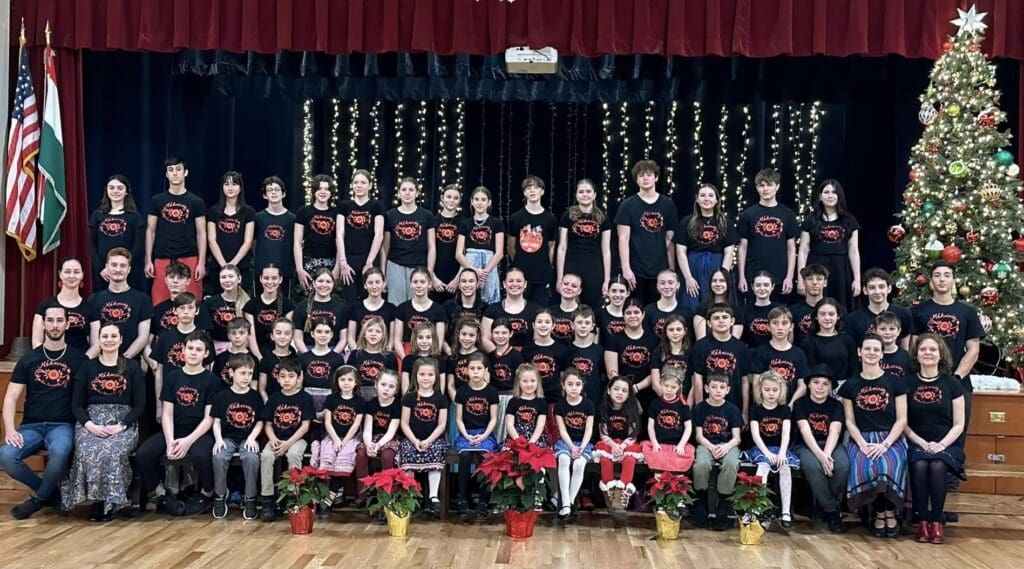
This recognition would also relate to your duties at HAAC. How did you get into the board of officers?
In December of 2013, Mózes Kovács, then president, was looking for a treasurer. I was looking for a job with my two young children at that time, so I didn’t want to volunteer for the role, but since they couldn’t find anyone else, I finally said yes. It was very difficult, because there are many events and only a few volunteers; in fact, it’s a half-time job, very confidential with huge responsibility: you can’t just hand over the keys or the books to someone else overnight. István Horváth, the previous treasurer, had already improved the processes a lot, but before him, the bookkeeping went purely with handwriting. Today, everything is online and much more organized. In the meantime, I was looking for a part-time job, but they wanted to hire me full time, which I didn’t dare to accept with the club and the kids. To many people, this sounds crazy. Why did I choose volunteer work? Because anything I start, I try to do to the best of my abilities, no matter if it’s volunteer or paid work. I was on my own for three years, but in my fourth year, I finally found a part-time job, so I asked Maria Stumpf, the first female president of HAAC, to help me out. Later as my paid job was gradually moving to a full-time occupation, I couldn’t continue as a treasurer. However, more and more young people started to work in the cultural group and asked me to be the cultural vice president, since I had been organizing programs for the dance groups and the club for fifteen years. Thus in 2018, something happened that had never occurred in HAAC history before: the nominating committee nominated a senior board member, while the membership nominated me for the cultural vice president role. One year later I was elected financial vice president and in 2020, president.
You had to face two big challenges: collaboration between two generations and the Covid pandemic.
We started on a very positive note, very motivated, full of plans. Many young members joined, many older ones stayed around, a large board was formed and everyone saw the mixed leadership as a very positive development. My main goal was to bring the two generations together and create a strong club. On 14 March, however, we had to cancel the 15 March celebrations. During the restrictions with the younger generation we regularly met at the club’s property outdoors (a farm outside of New Brunswick) and started cleaning, packing and preparing for the post-pandemic period. The initial euphoria still lasted. As soon as fifty people were allowed to assemble, we immediately started to re-organize the club programs at the farm. We celebrated 4 June as the Hungarian Unity Day, inviting one or two leaders from each Hungarian organization and the Consul General of Hungary from New York. We continued the monthly Friday dinners on a weekly basis. We cooked inside the club and brought it to the farm where people could pick it up; later we set up a big tent and people could have dinner there. We started folk dancing again. We organized Father’s Day, 4th of July, picnics, etc. When it turned very cold, we went back to the club and continued with the events with spacing, masks and plastic tables brought from the farm that could have easily been disinfected. We really tried hard because we knew people needed the contact.
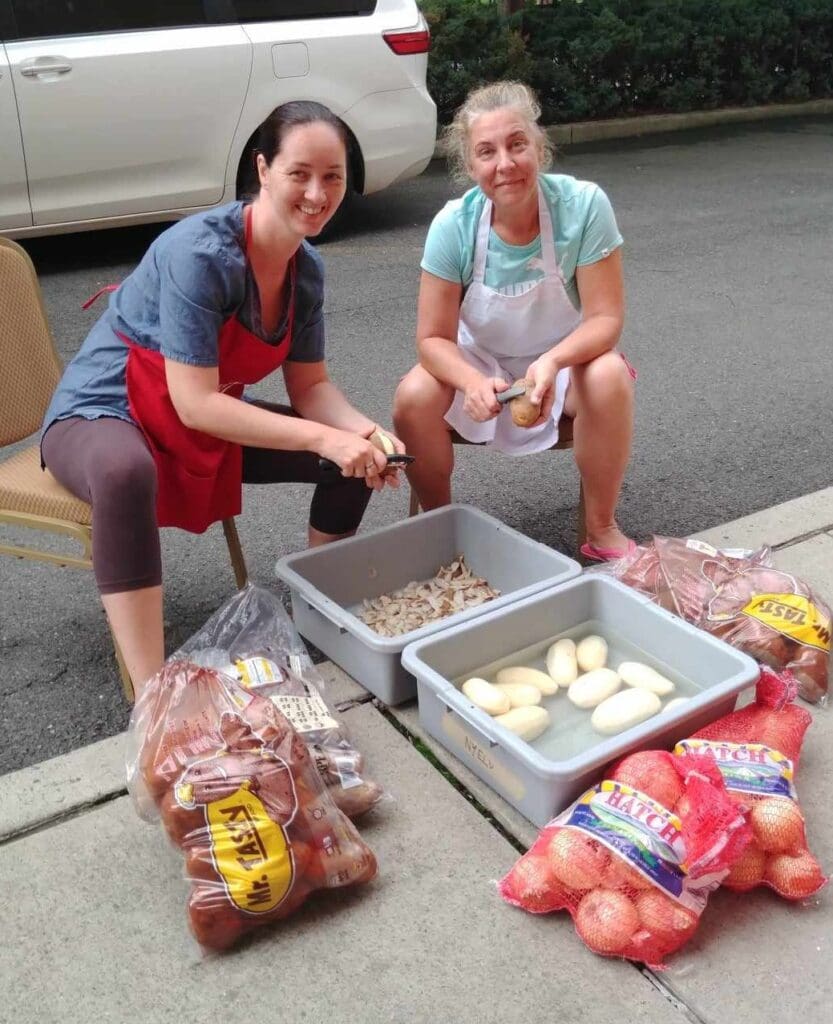
It sounds like a success story, but it wasn’t completely… In 2022, you retired from the club affairs, right?
I believe it was a success: we were able to provide services and space, while most social clubs closed. But it was extremely tiring: we did it with seven–eight people, while the officers’ board started out with almost thirty members. Unfortunately, we lost touch with most of the older generation during Covid. Pandemic stopped them, and after defying their age for years, very suddenly it caught up to them. Sadly, in the last four years, many older active members passed away, too. It was very hard to see, and even harder to live through. Volunteering is a wonderful thing, but you can’t do it without the active support of the community. We didn’t feel the support from the older generation and from other young people either. On one side, we were faced with a wall of ‘this is not the way we used to do things’, on the other side, we saw no interest whatsoever. It was an uphill battle of one step ahead, two back: what could have taken an hour took unnecessarily three. At the end, those who worked tirelessly for years, burnt out. In addition, I had to pay more attention to my job and my family. For more than ten years, HAAC was my priority, I built my personal life around it. I remember when Zalán was one and a half years old, I sat him on my big belly and assisted my group while performing at the local Hungarian Festival all day, even though I was due to give birth to Tobor the same day. They were with me later, on all rehearsals and performances, because there was no other way. Looking back, I have no idea how I did it. They spent the last ten years in the club, and although they became older and are now able to stay home alone, they are still dependent on us to drive them to their activities. Deciding on a college education is very important in a young adult’s life, and I knew that sooner or later they would need our help. My husband has always been by my side; we had treated work for the community as a family matter. It was time for changes in our family matters. I stepped down from the presidency, but remained on the board as a trustee.
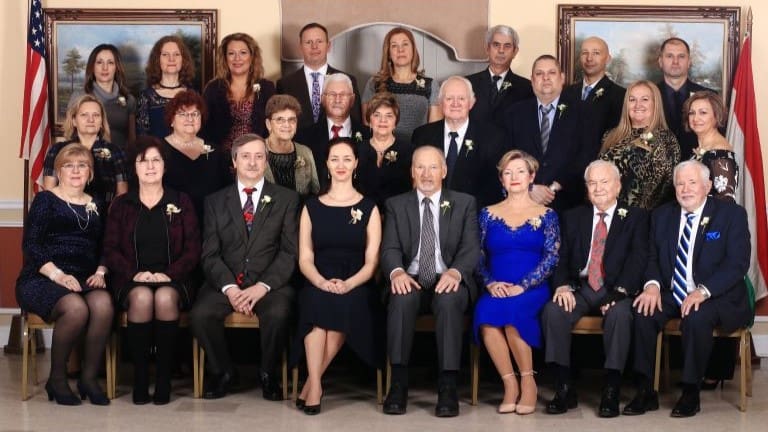
What happened in 2023 when former leaders returned to leadership positions?
Two former presidents came to the rescue to run the club together for a year, and while it is honorable that they took on this difficult task, it was not the most fortunate solution. There is a reason why there is only one chef to run a kitchen. But it was an emergency and at the time this was the only solution. It did not help either that there were very few active officers as many left at the end of 2022. While Covid had slowed down the older generation, it had also affected the younger ones: they had lost the momentum of volunteering. There were also many other factors that affected the club even long before the pandemic, but were never acknowledged or dealt with or adjusted for. Since the last big wave of emigration to the area around 2000–2002, not many Hungarian immigrants settled on the East Coast (and in New Jersey specifically), except for a few who came for temporary work reasons. There was no new influx of help who would be looking for a permanent Hungarian base. Unfortunately, the second and third generation, children of the older long-time volunteers participate in the club activities very rarely. And there is a big difference in lifestyle between let’s say forty years ago and now. In the past, immigrants were looking for a Hungarian community to fill the hole. Today, we have instant access to Hungarian TV, radio, and even live video chat with anyone from Hungary; visits are available back and forth. Many women used to not work, gave birth early and had grown children by their late forties, which gave them time to volunteer. Nowadays, they are all working and giving birth much later. Previously, the club consisted of mostly young retirees. Currently, we have many families with young children. Thus, we are struggling with a generation gap, missing those who have grown children, stable careers but still enough strength and time to manage the club. So overall, there are a lot of factors affecting the lives of our communities today that were not previously known or typical.
We need to be open and adapt to changes.
2024 also started in an extraordinary way in the club. Why did you finally accept the presidency?
2023 showed that this could not go on. At year-end, I was asked but refused to come back. I couldn’t take on the same line-up, methods, ideas and expectations. We started the year with no elected leadership, just a conditional cultural vice president, and we did not even have a club manager. When it became clear that the closure of the club was imminent, I convened a discussion where everyone from the younger generation could share their pains and sorrows. We all agreed that the survival of the club and the Hungarian community connected to the club was important to all of us, so the questions arose: how can we make it work and who is willing to help? We finally concluded that if we support each other and don’t let each other down, we are enough to keep it going, but only by working together. Our intentions were not to hurt anyone. For years, we heard the older generation asking for the younger one to take over, especially when there was no leadership at all. With all due respect, change was needed. We presented this option to the members; it was accepted, and the new board was sworn in together. Of course, there were some unhappy people, but with dance programs and school being in limbo, the usual club events and annual Hungarian Festival coming up, preparations had to be started immediately. The Hungarian community in New Brunswick and beyond took it for granted for over a century that HAAC has always been and will always be open to anyone who wants to be part of this community, but now we need to make sure it stays open at all. Volunteering is about helping a community, not about one person.
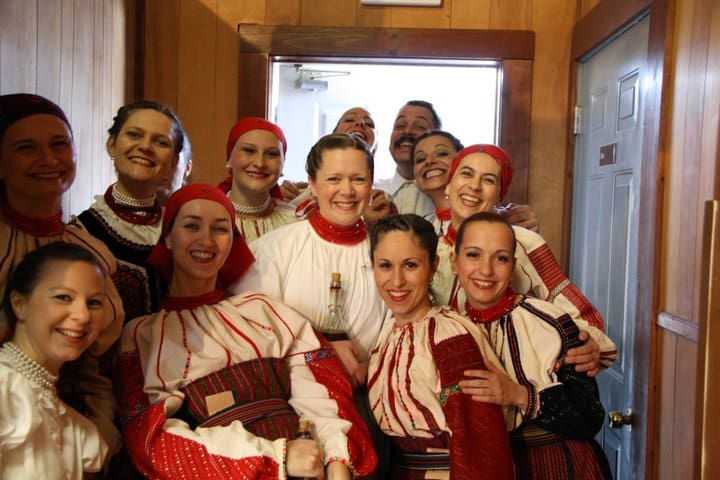
Your previous goal as president was to bring the two generations together. How do you see the new board and the new way of cooperation? What are your current goals? What events can we expect?
The new board is made up of some officers from last year, younger officers who left in 2022 and came back, and we have some new members who have been actively involved with the club in the past. There are twenty-eight of us. Zsuzsi Mohi is the financial vice president, Ildikó Bézi the cultural vice president, Imola Mihály remained the treasurer and István Varga became the manager. The former presidents remain as trustees. Although we all know each other, we need time to learn to work together. Everybody has a slightly different background, different interests, different hobbies, but the community can only benefit from the diverse programs and activities we provide. The main point is: help each other, ask for help before anyone would burn out, and work together. I’m confident that by year-end, we will learn how to bring the best out of each other and support each other for the benefit of the community. Our short-term goal was to get things up and running again quickly to keep the club going. We’ll have the officers’ induction on 4 May as part of the annual Spring Ball; there will be a joint performance by Mákvirág and Csűrdöngölő on 11 May; the musical based on Zsigmond Móricz’s novel Be Faithful unto Death will be on stage by the Hungarian school on 19 May. We are getting ready for the largest event, the annual Hungarian Festival on 1 June, during which the club serves thousands of guests from all over the Tri-state area, requiring hundreds of volunteer hours. The monthly dinners remain, and we expect a busy fall. In the background, important maintenance and repairs are taking place both in our main building and at the farm. While we need to address the obstacles mentioned earlier, and changes will need to be made to adapt to current needs, our long-term plan is to make the club a real community place that interacts with other Hungarian organizations in more dynamic and consistent ways that would bring a wider variety of programs and activities. The ultimate goal would be for everyone to feel like the club is their place. Of course, this should work the other way around, too: the management and those who work here should feel that the club is a valued place and has a purpose for many years to come.

